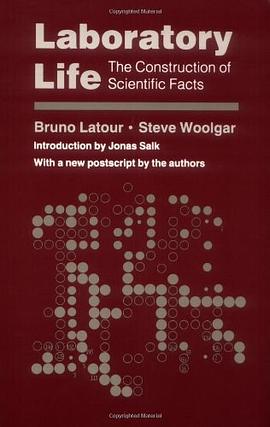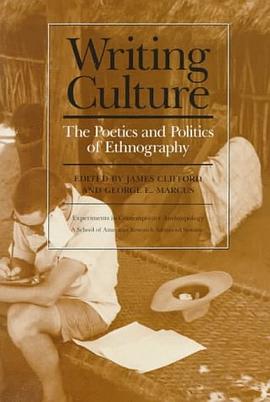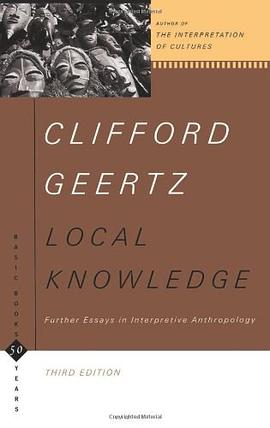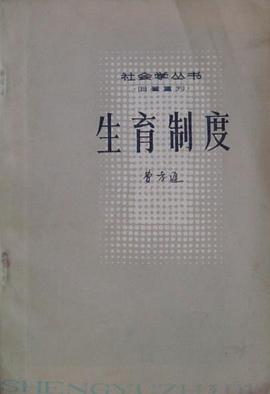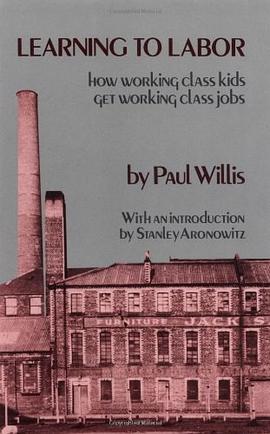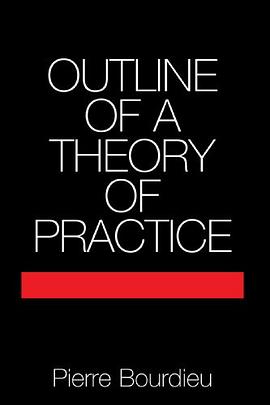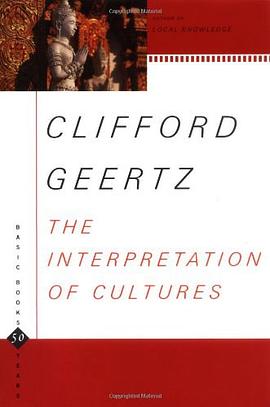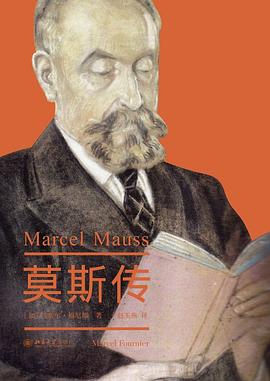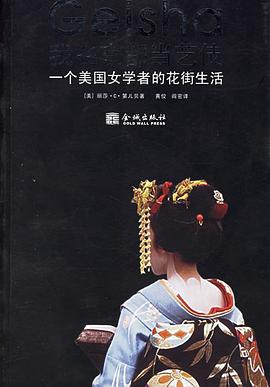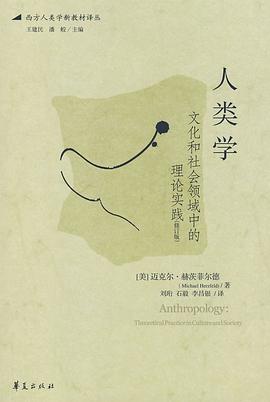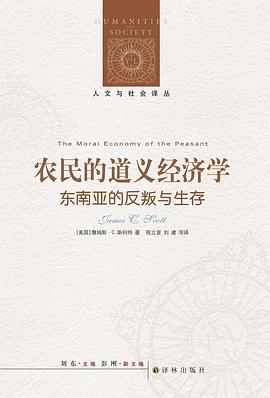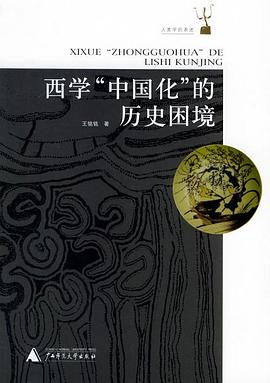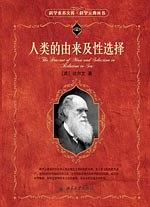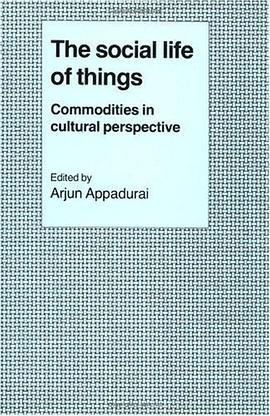
The Social Life of Things pdf epub mobi txt 电子书 下载 2026
- 人类学
- 物质文化
- 社会学
- 物质文化史
- 文化人类学
- Anthropology
- Appadurai
- 社会史
- 社会学
- 物的使用
- 文化研究
- 日常物品
- 物质文化
- 社会互动
- 技术社会
- 物品生命周期
- 身份建构
- 社会关系

具体描述
The meaning that people attribute to things necessarily derives from human transactions and motivations, particularly from how those things are used and circulated. The contributors to this volume examine how things are sold and traded in a variety of social and cultural settings, both present and past. Focusing on culturally defined aspects of exchange and socially regulated processes of circulation, the essays illuminate the ways in which people find value in things and things give value to social relations. By looking at things as if they lead social lives, the authors provide a new way to understand how value is externalized and sought after. They discuss a wide range of goods - from oriental carpets to human relics - to reveal both that the underlying logic of everyday economic life is not so far removed from that which explains the circulation of exotica, and that the distinction between contemporary economies and simpler, more distant ones is less obvious than has been thought. As the editor argues in his introduction, beneath the seeming infinitude of human wants, and the apparent multiplicity of material forms, there in fact lie complex, but specific, social and political mechanisms that regulate taste, trade, and desire.
Containing contributions from American and British social anthropologists and historians, the volume bridges the disciplines of social history, cultural anthropology, and economics, and marks a major step in our understanding of the cultural basis of economic life and the sociology of culture. It will appeal to anthropologists, social historians, economists. archaeologists, and historians of art.
作者简介
Editor
Arjun Appadurai, New School University, New York
Contributors
Nancy Farriss, Arjun Appadurai, Igor Kopytoff, William H. Davenport, Alfred Gell, Colin Renfrew, Patrick Geary, Brian Spooner, Lee V. Cassanelli, William M. Reddy, C. A. Bayly
目录信息
Preface
Part I. Toward an anthropology of things:
1. Introduction: commodities and the politics of value Arjun Appadurai
2. The cultural biography of things: commoditization as process Igor Kopytoff
Part II. Exchange, Consumption, and Display:
3. Two kinds of value in the Eastern Solomon Islands William H. Davenport
4. Newcomers to the world of goods: consumption among the Muria Gonds Alfred Gell
Part III. Prestige, Commemoration, and Value:
5. Varna and the emergence of wealth in prehistoric Europe Colin Renfrew
6. Sacred commodities: the circulation of medieval relics Patrick Geary
Part IV. Production Regimes and the Sociology of Demand:
7. Weavers and dealers: the authenticity of an oriental carpet Brian Spooner
8. Qat: changes in the production and consumption of a quasilegal commodity in northeast Africa Lee V. Cassanelli
Part V. Historical Transformations and Commodity Codes:
9. The structure of a cultural crisis: thinking about cloth in France before and after the Revolution William M. Reddy
10. The origins of swadeshi (home industry): cloth and Indian society, 1700–1930 C. A. Bayly
Index.
· · · · · · (收起)
读后感
Retracting to the Marxian framework of the politics of commodity production and departing from Simmel’s argument that exchange creates value and not the other way around, the edited essays in the Social life of Things shed light on the specific trajectory ...
评分Retracting to the Marxian framework of the politics of commodity production and departing from Simmel’s argument that exchange creates value and not the other way around, the edited essays in the Social life of Things shed light on the specific trajectory ...
评分Retracting to the Marxian framework of the politics of commodity production and departing from Simmel’s argument that exchange creates value and not the other way around, the edited essays in the Social life of Things shed light on the specific trajectory ...
评分Retracting to the Marxian framework of the politics of commodity production and departing from Simmel’s argument that exchange creates value and not the other way around, the edited essays in the Social life of Things shed light on the specific trajectory ...
评分Retracting to the Marxian framework of the politics of commodity production and departing from Simmel’s argument that exchange creates value and not the other way around, the edited essays in the Social life of Things shed light on the specific trajectory ...
用户评价
这本书的标题,"The Social Life of Things",让我联想到许多关于物品的传说和故事。想象一下,一件古老的瓷器,它可能曾在皇宫的宴会上出现,也可能在战乱中颠沛流离,最终流落到某个古董店。它的每一次辗转,都可能伴随着一段不为人知的故事,连接着不同的时代、不同的人物。我希望这本书能够为我们揭示更多这样的“物语”,让我们看到物品是如何成为历史的见证者,它们是如何承载着时代的记忆和人类的情感。更重要的是,我希望这本书能帮助我理解,在现代社会,即使是那些批量生产的商品,它们也并非完全失去了“社交”的属性,它们可能代表着某种消费文化,某种社会地位,或者成为我们表达个性的方式。这种对物品社会学层面的探索,让我感到无比兴奋。
评分这本书的书名,"The Social Life of Things",光是读起来就有一种莫名的吸引力,仿佛预示着一场关于我们日常生活中那些看似平凡却又暗藏玄机的物品的探索之旅。作为一名普通的读者,我对那些能够揭示事物背后隐藏故事的文本总是充满了好奇。我总是相信,我们身边的每一件物品,无论是祖母留下的旧相框,还是街角咖啡店的马克杯,它们都不仅仅是静止的物体,而是承载着历史、情感、甚至社会联系的载体。它们见证了我们的喜怒哀乐,参与了我们的生活,并以我们常常忽略的方式与我们进行着无声的交流。我想象着这本书将如何引导我重新审视那些熟悉的物件,发现它们鲜为人知的“社交”维度,理解它们是如何在我们的生活中扮演着重要的角色,又是如何与他人、与社会产生联系的。这种对物质世界的深度挖掘,让我对接下来的阅读充满期待,仿佛即将开启一扇通往全新认知世界的大门,让我能够以一种更丰富、更具洞察力的方式去理解我们所处的世界。
评分这本书的书名,"The Social Life of Things",触动了我内心深处对“物”的思考。我们常常说“人际关系”,但却很少想到“物际关系”。然而,我们与物品的互动,在某种程度上也构成了我们生活的重要组成部分。想想那些陪伴我们度过无数日夜的枕头,那些记录我们生活点滴的相册,甚至是那些让我们得以便捷生活的各种工具,它们无形中塑造着我们的生活习惯,影响着我们的情绪,甚至在某些时刻,成为我们情感的寄托。我希望这本书能够揭示物品是如何超越其物理属性,成为我们社会生活的一部分,理解它们如何参与到我们的身份构建,如何成为我们社交的媒介,又如何在更广阔的社会结构中发挥作用。这种从物品本身出发,去理解社会运作的视角,对我来说是一种新颖且极具启发性的尝试。
评分《The Social Life of Things》这个书名,唤醒了我内心深处对“物”的敏锐感知。我一直相信,我们身边的每一件物品,都有其独特的故事和生命轨迹。它们并非只是被动地存在于我们的空间里,而是积极地参与到我们的生活中,与我们建立着某种微妙的联系。我好奇的是,这本书将如何解析物品的这种“社交”属性。例如,一件被精心收藏的书籍,它可能代表着个人的阅读品味和知识追求;一件被赠送的纪念品,它可能承载着友谊的温度和共同的回忆;甚至是一件被二手交易的商品,它也可能在新的主人那里展开新的生命篇章。我希望这本书能够让我看到,物品是如何成为我们社会互动的重要组成部分,它们是如何传递情感,如何构建身份,又如何在更广阔的社会网络中扮演着重要的角色。
评分当我看到《The Social Life of Things》这个书名时,我脑海中闪过的第一个念头便是:物品也是有生命的,它们也参与着我们的人际交往。我们常常以为,只有人与人之间才存在“社交”,但事实上,我们与物品的互动,也构成了我们社会生活的重要组成部分。一件充满故事的老物件,可以成为我们与他人沟通的桥梁;一个共享的工具,可以拉近邻里之间的距离;甚至是一件设计独特的商品,也可以成为我们展示个人品味和社交身份的标签。我希望这本书能够深入探讨物品在社会互动中的作用,揭示它们是如何作为媒介,连接着过去与现在,连接着个人与群体,甚至连接着物质世界与精神世界。这种对“物”的社会学解读,让我对这本书充满了浓厚的兴趣。
评分我对《The Social Life of Things》这本书的期待,源于我对“物”在人类社会中的作用一直以来都抱有浓厚的兴趣。我们常常关注人与人之间的关系,却很少深入思考人与物之间的互动,以及这些互动如何影响我们的社会生活。一件物品,从它的生产、流通、使用到最终的消亡,都可能伴随着无数的社会联系和故事。我希望这本书能够为我打开一扇新的窗户,让我看到物品是如何不仅仅作为物质存在,而是作为社会关系的载体,作为文化符号,甚至作为权力运作的媒介。无论是古老的传家宝,还是现代的电子产品,它们都以自己的方式参与着我们的社交生活,影响着我们的身份认同,甚至塑造着我们的世界观。这种从“物”的视角进行的社会学研究,让我感到十分新奇和期待。
评分这本书的书名,《The Social Life of Things》,直接触动了我对物品在人类社会中的地位和作用的思考。我们生活在一个充斥着各种物品的世界,从日用品到奢侈品,它们无处不在。但我们往往只关注物品的功能性,而忽略了它们背后所蕴含的社会意义。我期待这本书能够深入挖掘物品的“社交”层面,揭示它们是如何成为人类社会互动的重要媒介。或许,一件老物件的流转,就能折射出社会的变迁;一个共享的工具,就能拉近人与人之间的距离;甚至是一件设计独特的商品,也能成为个人品味和社交身份的象征。我希望这本书能够提供一种全新的视角,让我能够以一种更加深刻和细腻的方式去理解物品在社会中的角色,以及它们如何影响我们的生活方式、价值观念乃至社会结构。
评分在阅读之前,"The Social Life of Things" 这个书名就已经在我脑海中勾勒出了一幅画面:那些摆放在我们家中的物品,它们并非静止的摆设,而是拥有各自的“社交圈”。一件精心挑选的家具,它可能与其他家具和谐搭配,共同营造出一种居家氛围;一件具有纪念意义的礼物,它可能在不同的场合被展示,唤起美好的回忆,也可能在朋友之间引起关于过往的讨论。我好奇的是,这本书将如何深入分析物品的这种“社交”行为,它们是如何在我们的生活中穿梭,如何与人发生联系,又如何在更广泛的社会网络中扮演角色。我期待这本书能够提供一种全新的视角,让我能够重新认识那些我习以为常的物品,发现它们隐藏的丰富性和复杂性,从而对我的生活有更深刻的理解。
评分《The Social Life of Things》这个书名,对我来说,不仅仅是关于物品本身,更是关于物品所处的社会环境和它们所扮演的角色。我一直对那些能够将抽象的概念具象化的作品抱有极大的热情,而这个书名恰好做到了这一点。它让我开始思考,那些我们每天都在接触的物品,它们是如何与我们的生活方式、价值观念以及社会结构息息相关的。也许,一件旧衣服的流转,就折射出社会经济的变化;一件电子产品的更新换代,就反映了科技发展的速度。我期待这本书能够带领我走入一个由物品构建的社会舞台,去观察它们如何与人类互动,如何传递信息,如何塑造文化,甚至如何影响我们的社会秩序。这种从“物”的视角出发的社会学分析,对我而言,是一种极具挑战性和吸引力的阅读体验。
评分我对这本书的期待,很大程度上源于其“社交”的视角。我们生活在一个物质极大丰富的时代,周围充斥着各种各样的商品和物品,但我们往往只关注它们的功能性,而忽略了它们可能具有的社会意义。我很好奇,这本书会如何剖析一件物品的“生命周期”,从它被制造出来,到它被使用、被转让、甚至被遗弃的过程,在这个过程中,它如何与人发生互动,又如何在人与人之间建立起联系。也许,一件传家宝不仅仅是一件物品,更是家族情感的纽带;也许,一件被捐赠的旧衣服,承载着赠予者的善意和接收者的希望,成为一种无形的社会资本。我希望这本书能让我跳出功利主义的思维模式,去感受物品背后所蕴含的人文关怀和社会价值,从而更加珍惜我们所拥有的一切,也更加理解那些我们不曾注意到的社会流动和人际关系。
评分可以算作早期的物质文化研究的代表性文集之一,具有开创价值。尤其是其中Colin Renfrew的一篇,让我突然意识到,我们当成“新知识”普及的“中西青铜的差异”观念是错误的。绝非中国的青铜是礼器,西方的青铜是装饰。前者有误,中国的青铜当是“饮食器、酒水器、乐器、兵器、工具”等等,但是无论是饮食器之类,还是装饰,皆为“礼器”也!
评分Introduction和第二篇。
评分The most recommended part is its intro. Retracing to Marxian style of production of commodities, the author concerns more about its consumption and circulations in capitalism. The roughly three dimensions,namely the diversion, demand and knowledge, have been complemented to the new pattern of explaining the emergence of industrialization.
评分刚开始看没读懂,后来经过Joe点拨似懂非懂,这本书处理的关键问题是价值是如何产生的;与马克思主义认为的劳动创造价值不同,本书作者们告诉我们交换过程也产生了价值。
评分反复读了前两章,讨论了价值的政治、商品化(一般化)和文化之于社会的作用,两章对照着读,能够更好地理解Appadurai所说的"路径与偏移"。Appadurai几十页的intro列举诸多案例,有些真让人一头雾水,Kopytoff则写得精妙而工整。国内有几篇介绍的文章,这么有意思又重要的书为什么没有中译本?
相关图书
本站所有内容均为互联网搜索引擎提供的公开搜索信息,本站不存储任何数据与内容,任何内容与数据均与本站无关,如有需要请联系相关搜索引擎包括但不限于百度,google,bing,sogou 等
© 2026 book.quotespace.org All Rights Reserved. 小美书屋 版权所有


